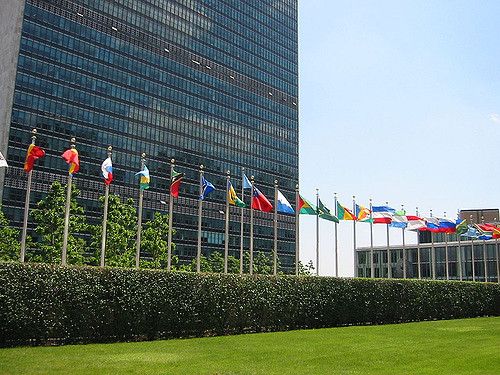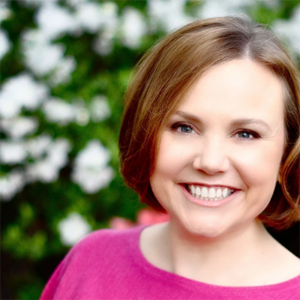Kingdom Embassies and Ambassadors
Posted 01/30/2017 in Church Planting
A Newbigin Opportunity to American Mainline Church Planting Models
“Where should we plant?” and “Who will be our church planter?” are two of the first questions our eager church planting commission asks as we hover over a detailed map of our North Texas region. Our team, with coffee in hand, has gathered this early morning filled with excitement and expectation as we analyze where new houses are being built. Our region is booming with new companies moving to the area. New growth, new jobs, and new rooftops mean new people to engage and to reach with the love of Jesus Christ. As an evangelist, my heart begins to beat a little faster . . . I simply cannot wait to go and scout out the new landscape and meet new people who may not know Jesus or who might not have a place to worship. The atmosphere is electric as we begin to make a list of potential spots that do not have a church in our denomination. Our team is brimming with joy and ideas.

Like many mainline denominations, our first three questions are often as follows:
- What is our budget? How long are we able to financially support our planter? Is this geographical area financially viable to sustain a new church?
- Where should we plant based on population growth areas that do not have an Episcopal church? Does this area have a growing demographic that is traditionally shown to be drawn to Episcopal worship? (The statistics have shown this to traditionally be Caucasian, educated, middle- and upper-middle-class people, although we are always seeking to make our congregations more diverse.)
- Do we have a planter in the pipeline? Whom should we send?
These are good, reasonable questions—and there are more questions to be asked.
Indeed, church planting is one of the most dynamic ways to expand the kingdom of God and I give thanks to be part of a denomination that is planting. Evangelism should never be couched as an individualistic endeavor as it is sometimes taught in the West. God calls a people to be his witness in the world. It is a communal endeavor. Hence church planting is a powerful means to proclaim the good news to new communities that have not been reached for Christ.
The great missionary, theologian, and missiologist Lesslie Newbigin stated that the local church is the hermeneutic for the gospel as it lives out the gospel narrative. The good news is proclaimed and it is lived and incarnated through the local church. “The church is not so much the agent of mission as the locus of mission” (Gospel in a Pluralist Society, p. 119). The agent of mission is God himself—and his body, his church, is called to embody his message of salvation to the world.
The church is “incorporated into his (God’s) mission to the world, to be the bearer of God’s saving purpose in the world, to be the sign and agent and the first fruits of his blessed kingdom which is for all” (GPS, p. 86).
Newbigin suggests that we should view the church universal as an embassy for the kingdom of God on earth. Hence the local church is God’s local outpost (God’s local embassy) for gospel proclamation and manifestation. God’s local embassy is “a community that does not live for itself but is deeply involved in the concerns of the neighborhood” (GPS, p. 229). As the Anglican Archbishop William Temple said so well, “the church is the only society on earth that exists for the benefit of its non-members.” The local kingdom embassy is comprised of ambassadors for Christ who share Jesus in their context.
Newbigin’s framework (which is embraced more in the majority world church) challenges mainline denominations, and perhaps all Western planters, to ask more questions and expand our perspective of what comprises a viable church plant. Here are some additional questions:
- Is there a gospel witness in this place? What geographical area is lacking a robust gospel witness? We need to be more ecumenical and kingdom minded. Instead of exploring if there is an expression of our particular denomination in a locale, we should first ask what Christian presence is there and if we are needed. In seeking where to plant a church, we should first explore where there is no kingdom embassy and go where the gospel is not well represented. This is the place that needs the gospel.
- Where would our Lord go first if he came to our geographic region? Jesus walked among all people, but he especially reached out to the poor, the outcasts, and the broken. The mainline mindset is often to plant where the church can thrive and sustain itself financially. This model can limit where our Lord might want us to plant. Some of our fastest growing plants in our region are ones that minister to refugees.
- Who is our planter? Oftentimes mainline denominations seek to find that one perfect leader (with his or her 2.5 kids and spouse, plus dog) who will heroically and often singlehandedly parachute into a new community to launch the church plant. Newbigin’s model challenges this notion altogether. Newbigin highlights that pastors are to be the leaders of the kingdom embassy who then empower and equip the ambassadors (a TEAM of lay people) to go out and witness in a particular community. Jesus did not send out his disciples alone and neither should we. Our Episcopal church planting commission has grasped this and is emphasizing the importance of a team. Cultivating lay leadership is just as significant as finding the right plant leader/pastor. The team needs to be recruited, nurtured, and equipped with as much care and attention as the lead pastor.
Church plants have a unique opportunity to embody the missional call that the church universal should already embrace. Being a community on mission to share the gospel with a hurting world is the commission to the entire body of Christ. This is why it is all the more imperative that as we begin seeking new places to plant, we have a kingdom evangelistic focus to seek and save the lost. This is a motivation to expand our scope of what it means to plant, where we should plant, and who is to plant. And we pray . . . Thy Kingdom Come, Thy will be done on earth as it is in Heaven.

Carrie Headington serves as director for evangelism for the Episcopal Diocese of Dallas, evangelist for the Episcopal Church, founder of the Good News Initiative, and adjunct professor of evangelism and church planting for Fuller.www.carrieheadington.com

